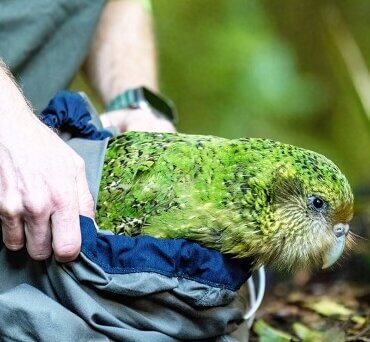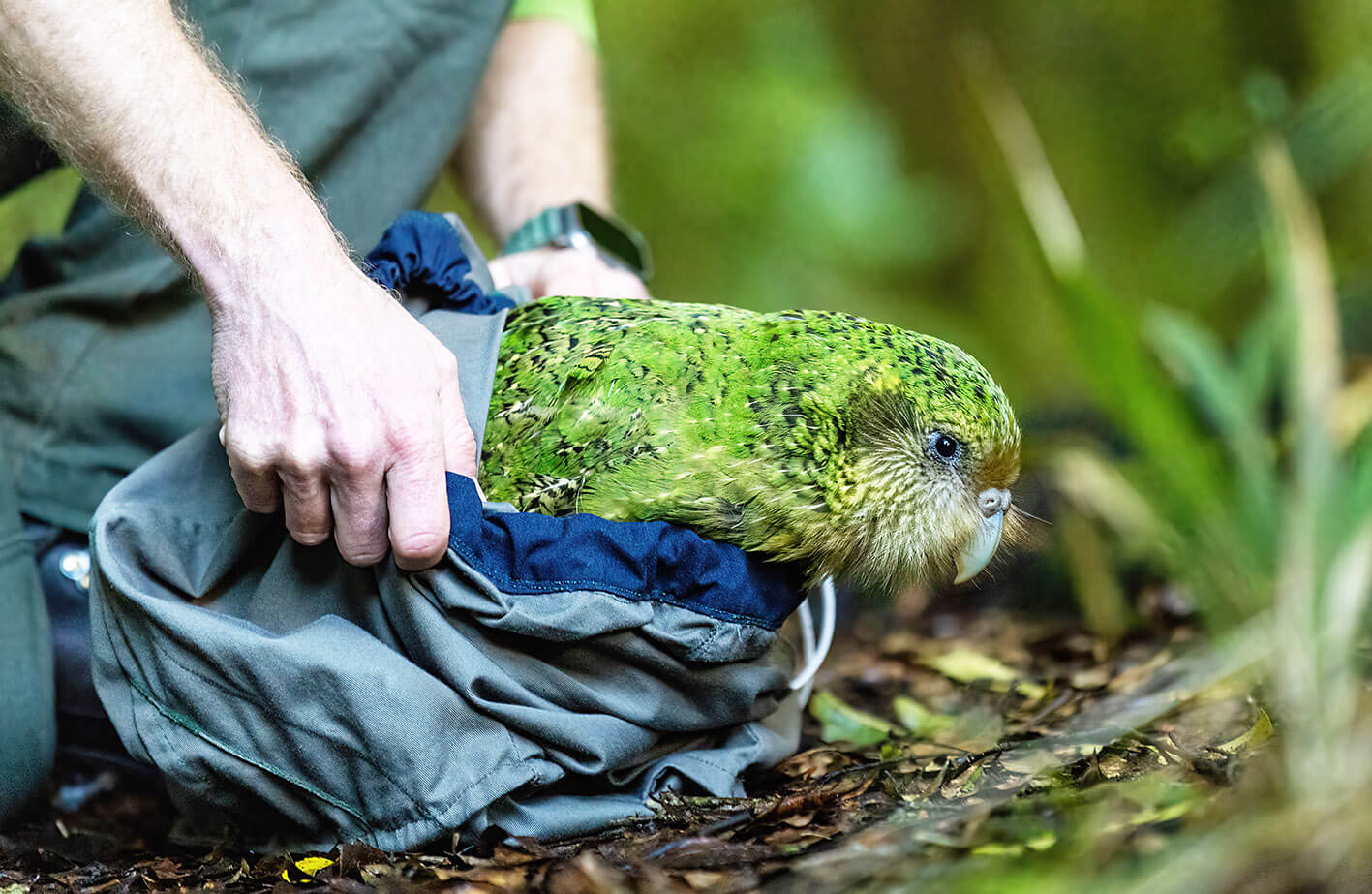

Motupōhue, pictured arriving at Maungatautari in July has been flown “home”. Photo: Peter Drury.
Waikato’s fledgling kākāpō population is proving too inquisitive for its own good.
It was revealed this week three of the 10 birds brought up from the bottom of the South Island to Maungatautari had managed to climb out of the specially adapted enclosure which protects them.
And as a consequence, three of the birds have now been sent back.
Motupōhue, who was part of the first group transferred in July, found his way out twice in quick succession and two others, Manawanui and Kanawera, created a high monitoring workload by spending a lot of time near the fence.
The three went back to a southern predator-free island last week.
The Department of Conservation is now investigating new monitoring systems for the Waikato fledgling kākāpō population.
Operations Manager for Kākāpō Deidre Vercoe says departures from the fenced sanctuary were an expected challenge of the trial, and four in six weeks has meant an increase in monitoring was needed at a time where monitoring was expected to be significantly decreasing.
Reducing the population means staff can keep closer tabs on the nocturnal, ground dwelling parrots while still preserving the integrity of the trial.
“The kākāpō wear transmitters and are regularly monitored by rangers, but there are some limitations with the technology – tracking their exact whereabouts can be very labour intensive and is made more difficult by terrain and weather.”
The birds are all in good health.
“It’s just some of them are very interested in the fence. It could be an age thing, or a behavioural thing; we just don’t know yet.”
Te Rūnanga o Ngāi Tahu Kākāpō Species Representative Tāne Davis says Ngāi Tahu had worked closely with Sanctuary Mountain Maungatautari and a joint decision was made
to return the three kākāpō to Fiordland.
“Our curious taonga will always test us. We have learnt a lot since the manu were first released on Sanctuary Mountain Maungatautari
in July and I know they will continue to teach us more as they adapt to life on the mainland,” Davis said.








